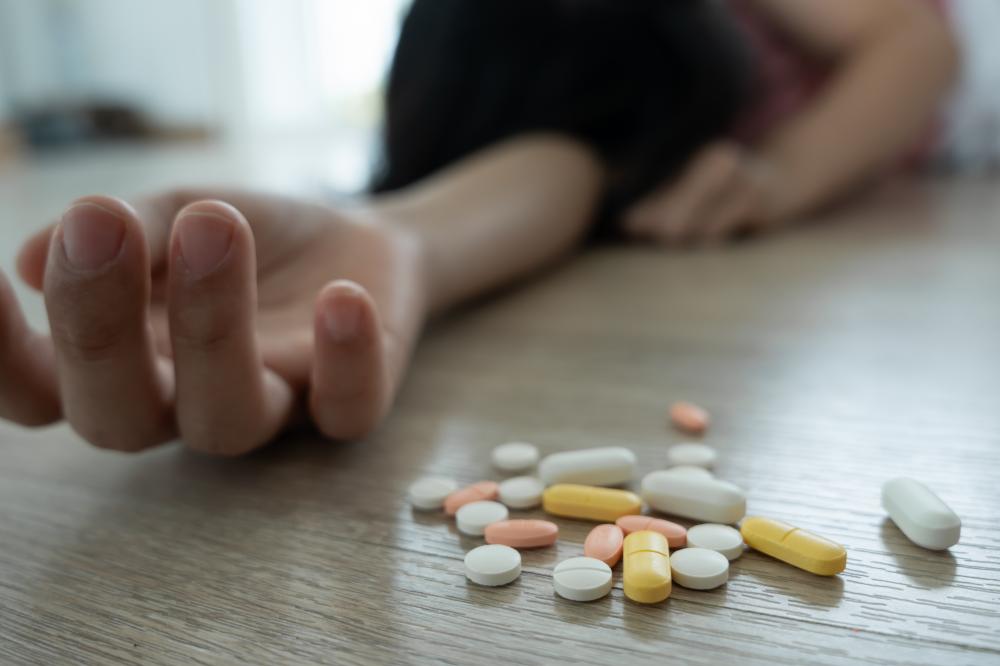
The Importance of Drug Detox
Drug Detox is a critical first step for anyone looking to recover from substance abuse. As someone with over two decades of experience at Solace Treatment Center, I’ve witnessed firsthand the transformative power of detoxification. Clearing drugs or alcohol from the body can be challenging, yet is essential for breaking free from addiction’s grip.
The process involves more than just physical cleansing; it sets the stage for sustainable recovery. The length and intensity of Drug Detox can vary based on factors like the type of substance used and the individual’s health condition. This initial phase is pivotal, as it prepares the body and mind for further treatment interventions.
The Drug Detox Process Explained
At Solace Treatment Center, we adhere to a comprehensive three-step Drug Detox process to ensure safe and effective results:
- Evaluation: Our medical team conducts a thorough assessment of the patient’s physical and mental health, using blood tests and reviewing their medical history to tailor the detox plan.
- Stabilization: We stabilize patients through medical and psychological therapy, using appropriate medications to manage withdrawal symptoms and prevent complications.
- Preparing for Treatment Entry: We guide patients through the transition from detox to a structured treatment program, equipping them with the necessary tools and expectations for the recovery journey ahead.
Drug Detox Dangers and Considerations
Deciding to embark on a Drug Detox journey requires understanding potential risks. Attempting detox at home, especially without medical supervision, can be hazardous. For example, alcohol withdrawal could lead to severe dehydration or even seizures.
Inpatient detoxification provides a safer option, offering 24-hour support and monitoring to manage withdrawal symptoms effectively. As a professional in this field, I’ve often emphasized the importance of supervised detox, particularly for those with severe addictions.
Different Types of Drug Detox
Drug Detox varies significantly depending on the substance involved. Opioid detox, for instance, is often considered one of the most uncomfortable, requiring medications that mimic drug effects to reduce the severity of withdrawal symptoms.
- Opioids: Involves medications like methadone or buprenorphine.
- Alcohol: Medical detox is crucial to prevent severe withdrawal symptoms.
- Benzodiazepines: Often requires a longer, slower weaning process.
Can You Safely Perform Drug Detox at Home?
For some, the idea of a home-based Drug Detox may seem appealing, offering privacy and comfort. However, it is fraught with challenges and potential dangers. The absence of professional oversight can lead to health complications and higher relapse rates.
Professional settings provide structured care and emergency support, crucial for managing unforeseen issues during Drug Detox. It’s always recommended to seek help from licensed facilities where medical staff can closely monitor and assist throughout the process.
What Qualifies as a Drug Detox Emergency?
A Drug Detox emergency usually arises when withdrawal symptoms pose a severe risk to health or life, such as acute dehydration, seizures, or suicidal ideation. Immediate medical attention is imperative in these situations to prevent fatal outcomes.
Recognizing the early signs of an emergency can be vital. Symptoms to watch for include extreme confusion, hallucinations, or severe agitation. Having quick access to a medical team can be the difference in effectively managing these crises.
What is the purpose of drug detox, and why is it a critical step in recovery?
Drug detoxification serves as the foundational phase in the journey to recovery from substance abuse. The primary aim of detox is to cleanse the body of toxic substances, allowing individuals to begin the healing process with a clean slate. This initial step is vital as it not only addresses the physical dependency but also sets the stage for addressing the psychological aspects of addiction. At Solace Treatment Center, we believe that successful detox involves more than just abstinence; it is about creating a stable, supportive environment where individuals can begin to rebuild their lives. Think of detox as the doorway to a new way of living, where the burdens of addiction start to lift, revealing the potential for a healthier, more fulfilling life.
How does Solace Treatment Center’s drug detox process ensure safety and effectiveness?
Our drug detox process is meticulously designed to ensure safety and effectiveness through a structured three-step approach. It begins with an evaluation, where we conduct comprehensive assessments to tailor detox plans that address individual needs. This step ensures that each client receives personalized care. Next is the stabilization phase, which involves medical and psychological support to manage withdrawal symptoms and prevent complications. Finally, in preparing for treatment entry, we equip individuals with the tools they need for their continued recovery journey. This transition is crucial, as it involves guiding clients toward long-term treatment plans. At Solace, we emphasize the importance of a compassionate, informed approach to detox, fostering an environment where patients can feel secure and supported.
Is it safe to attempt drug detox at home without professional help?
While the idea of detoxing at home may appear convenient and private, it carries significant risks, especially for those with severe dependencies. Without professional oversight, individuals can experience unpredictable and potentially life-threatening withdrawal symptoms, such as seizures, severe dehydration, or hallucinations. At Solace Treatment Center, we strongly advocate for medically supervised detox, where our experienced staff can provide the necessary care and intervention. This approach not only enhances safety but also increases the chances of successful recovery by providing the critical support needed during this challenging phase. It’s crucial to prioritize safety over convenience, ensuring the well-being of the individual embarking on their recovery journey.
What are the different types of drug detoxification methods available?
Drug detoxification methods vary depending on the substance involved and the individual’s specific needs. For opioids, medications such as methadone or buprenorphine are often used to ease withdrawal symptoms by mimicking the effects of the drug. Alcohol detox typically requires medical supervision to prevent severe withdrawal symptoms like seizures. Benzodiazepine detox involves a slower, tapered approach to safely wean individuals off the medication. At Solace, we understand that each detox method must be carefully matched to the client’s unique circumstances, ensuring the most effective and safe outcome. Exploring these options with professional guidance is key to determining the most appropriate path to recovery.
What qualifies as a drug detox emergency, and how should it be handled?
A drug detox emergency arises when withdrawal symptoms become life-threatening, such as experiencing severe dehydration, seizures, or suicidal thoughts. In such cases, immediate medical intervention is crucial. Recognizing early warning signs like extreme confusion, hallucinations, or severe agitation can save lives. At Solace Treatment Center, we emphasize the importance of having access to a responsive medical team during detox. Our facility is equipped to handle such emergencies, ensuring that clients receive the urgent care they need. It’s essential for individuals and their loved ones to know when to escalate to professional help, prioritizing health and safety above all else.
How long does the drug detox process typically take, and what factors influence its duration?
The length of the drug detox process can vary significantly, influenced by factors such as the type of substance used, the duration and frequency of use, and the individual’s overall health. Generally, detox can range from a few days to several weeks. For instance, opioid detox might last one to two weeks, while benzodiazepine detox could extend over a longer period due to the need for a gradual tapering approach. At Solace Treatment Center, our expert team evaluates each client’s situation to provide a tailored timeline, ensuring the detox process aligns with their specific needs and promotes effective recovery. Understanding these variations helps individuals set realistic expectations as they embark on their detox journey.
Are medications used during drug detox, and what role do they play in the process?
Yes, medications are often an integral part of the drug detox process, playing a vital role in managing withdrawal symptoms and reducing cravings. For example, methadone and buprenorphine are commonly used in opioid detox to ease withdrawal discomfort. Medications like benzodiazepines may be administered during alcohol detox to help prevent seizures. At Solace Treatment Center, we carefully evaluate and prescribe medications as part of a comprehensive detox plan tailored to each client’s needs. This approach helps ensure a more comfortable and safer detox experience, setting the stage for a successful transition into ongoing treatment. If you’re considering detox, understanding the role of medications can help demystify the process and enable informed decisions.
What happens after drug detox, and how can individuals sustain their recovery journey?
Completing drug detox is a significant achievement, but it’s just the first step in a longer recovery journey. After detox, individuals typically transition into structured treatment programs that address the psychological aspects of addiction. At Solace Treatment Center, we offer Partial Hospitalization and Intensive Outpatient programs, providing a continuum of care that supports clients in integrating back into their daily lives. These programs focus on developing coping strategies, building a support network, and preventing relapse. By engaging in therapy, support groups, and lifestyle modifications, individuals can work towards sustained recovery. Maintaining progress requires commitment and support, but with the right tools and mindset, a fulfilling life beyond addiction is possible. Consider what steps you’re willing to take post-detox to continue thriving on your recovery path.




